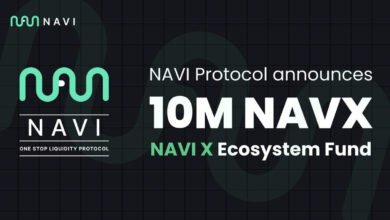Impact of blockchain on NFT and gaming scene

Blockchain has disrupted many industries since it became mainstream, and there is no doubt that it has the potential to disrupt many more. For this reason, this technology has attracted a lot of interest from potential innovators. The gaming industry is one of the industries currently benefiting greatly from blockchain technology. The global blockchain gaming market size was valued at $128.62 billion in 2022, and the market is expected to increase from $154.46 billion in 2023 to $614.91 billion in 2030, at a CAGR of 21.8%. It has been.
Blockchain’s unique decentralized structure has changed the way we look at gaming. It’s no longer just consoles and controllers with pixelated images to control on the screen. These games will be a complete experience, allowing players to experience the fun while earning in-game rewards that can be extracted and turned into valuable real-world assets. In this article, we will explore how blockchain is impacting the gaming scene, as well as other ways and niches in which blockchain technology is being disrupted.
Blockchain technology, blockchain gaming, and virtual reality (VR)
Virtual reality is a technology that allows players to interact with each other in ways never before possible. Create an immersive environment and enhance player interaction experience. Combined with blockchain technology, new possibilities have opened up. The decentralized nature of blockchain allows developers to create gaming products with VR experiences and distribute them directly to users without the need for intermediaries.
There’s also the ownership aspect on the blockchain and how VR can help with this. Blockchain enables the ownership of virtual assets such as land and built virtual real estate. These assets are securely stored and tracked on the blockchain, creating a marketplace where users can buy and sell these assets. This creates a new source of income for users of VR platforms and increases the sense of ownership. This ownership gives players a strong sense of control over their gaming experience. The integration of VR enhances the gaming experience for players as it provides an unprecedented level of engagement and realism. The VR industry is growing rapidly. The global VR market size is predicted to increase from less than $12 billion in 2022 to more than $22 billion in 2025.
Today, VR companies are building and delivering great products in the industry. Africarare and Victoria VR are two such platforms. The former is an African VR metaverse company that houses a digital land with African roots. Players are in Digital Land, where they can replicate landmarks and create spaces that honor their heritage. The latter is the world’s first virtual reality metaverse built on blockchain. Both projects push the boundaries of graphical fidelity and user interaction, promising a uniquely immersive experience.
Non-fungible tokens (NFTs) and games
NFTs are digital assets that utilize blockchain technology. These have unique digital identifiers that are recorded on the blockchain and are used to prove ownership and authenticity. These tokens gained popularity as digital collectibles, with use cases centered around trading digital artwork and other forms of media, but are now playing an important role in the blockchain gaming space. NFTs allow players to securely own and trade in-game assets on the blockchain. Players earn these NFT rewards through gameplay and participation in the virtual economy. Platforms like GGEM will attract millions of players to the gaming ecosystem by bridging the gap between traditional and blockchain gaming communities by onboarding Web2 gamers to his Web3 games. We are making a huge effort.
Video game publishers will generate $3.64 billion in revenue from in-game NFTs in 2022, according to a report from S&P Global Market Intelligence. As more games in the industry adopt NFTs, this number is expected to grow at a CAGR of 33.5% to $15.46 billion by 2027. Mechanics. His NFTs in games give players true ownership of in-game assets, unlike traditional games where the game and its assets are built and stored on centralized servers. With NFTs, everything is powered by blockchain and players can access an open marketplace to trade or sell their assets.
NFTs are also interoperable, allowing players to use their assets in different virtual worlds. Along with a player-driven economy where players can create, buy, and sell in-game items, this makes NFTs invaluable to the blockchain gaming world. These (NFTs) can also help authenticate assets in games. This is possible because every His NFT is unique and its record is openly accessible on the blockchain. Therefore, you can be confident of the authenticity of your assets.
Examples of gamified NFT platforms include Sidus Heroes and Kryptomon. Sidus Heroes is a futuristic, NFT-oriented, play-to-earn multiplayer online role-playing game (MMORPG). NFTs allow users to own in-game assets with his Sidus, creating a player-driven economy. With Cryptomon, think CryptoKitties meets Tamagotchi meets Pokemon. Cryptomon offers a fascinating combination of collecting, cultivating, and in some cases combat, creating deep connections between players and their virtual allies.
Combining fitness and rewards
Apart from gaming use cases, NFTs have also proven to be important in the health and fitness sector. Similar to gaming niches with play-to-earn mechanics, the fitness niche also has a move-and-earn paradigm going on. According to a report published by UnivDatos Markets Insights, the Move-to-earn fitness apps market was valued at over $380.6 million in 2020 and will grow from 2022 to 2028 at a CAGR of approximately 18.3%. expected to grow. A good example of a project that gamifies the concept of staying healthy is Aniborg. This is a Web3 Move2Earn application that combines fitness and fantasy, allowing users to prioritize their health, earn rewards, and earn exclusive her NFT characters. Imagine earning tokens for your daily jog or receiving rare NFT characters by completing fitness challenges. It’s a win-win.
Other aspects of NFTs and blockchain
The blockchain industry is vast. Earning NFT rewards from games is not enough. Whether you want to sell your assets or move them to another virtual metaverse, you need to understand how to interact with other niches in your industry to put them to good use. Knowledge of decentralized finance (DeFi) and centralized finance (DeFi) platforms and how to operate them will be useful in the industry. GT-Protocol provides this access and knowledge. This is his AI execution technology powered by Web3 AI that allows users to access his CeFi, DeFi, and NFT crypto markets through an all-in-one conversational AI interface. Such platforms make it easy to navigate the various aspects of the blockchain world, opening doors for both seasoned and new investors.
conclusion
As blockchain technology matures, we expect even more innovative experiences that empower players, blur the lines between real and virtual worlds, and create more inclusive and rewarding gaming experiences for everyone. . Imagine an economy driven by player ownership, an experience that breaks the boundaries of the physical world, and a community built on shared passion and innovation. The future of gaming is full of so many possibilities, and blockchain technology is at the forefront of this exciting revolution.
The published content may include the personal opinions of the author and may be subject to market conditions. Do your market research before investing in cryptocurrencies. The author or publication assumes no responsibility for your personal financial loss.





✓ Share: